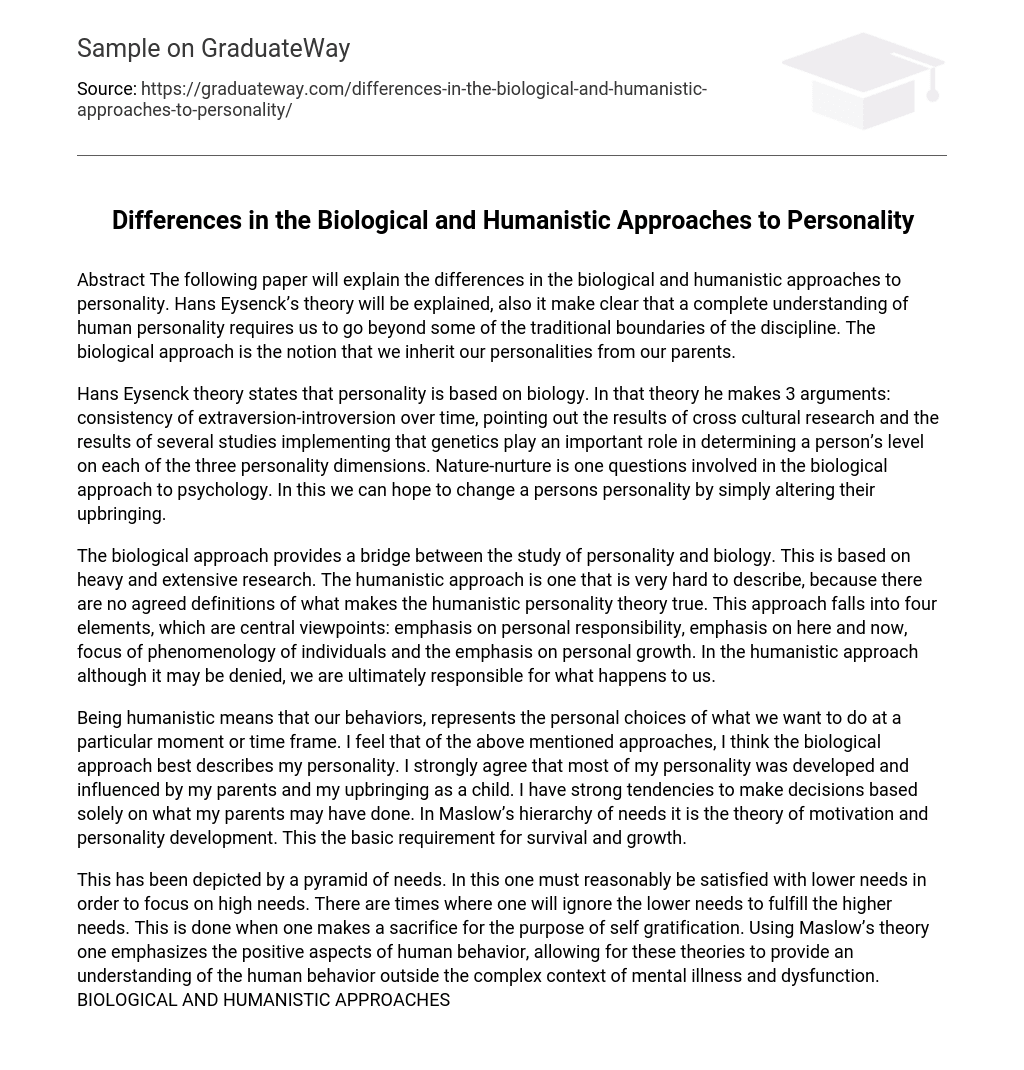Abstract The following paper will explain the differences in the biological and humanistic approaches to personality. Hans Eysenck’s theory will be explained, also it make clear that a complete understanding of human personality requires us to go beyond some of the traditional boundaries of the discipline. The biological approach is the notion that we inherit our personalities from our parents.
Hans Eysenck theory states that personality is based on biology. In that theory he makes 3 arguments: consistency of extraversion-introversion over time, pointing out the results of cross cultural research and the results of several studies implementing that genetics play an important role in determining a person’s level on each of the three personality dimensions. Nature-nurture is one questions involved in the biological approach to psychology. In this we can hope to change a persons personality by simply altering their upbringing.
The biological approach provides a bridge between the study of personality and biology. This is based on heavy and extensive research. The humanistic approach is one that is very hard to describe, because there are no agreed definitions of what makes the humanistic personality theory true. This approach falls into four elements, which are central viewpoints: emphasis on personal responsibility, emphasis on here and now, focus of phenomenology of individuals and the emphasis on personal growth. In the humanistic approach although it may be denied, we are ultimately responsible for what happens to us.
Being humanistic means that our behaviors, represents the personal choices of what we want to do at a particular moment or time frame. I feel that of the above mentioned approaches, I think the biological approach best describes my personality. I strongly agree that most of my personality was developed and influenced by my parents and my upbringing as a child. I have strong tendencies to make decisions based solely on what my parents may have done. In Maslow’s hierarchy of needs it is the theory of motivation and personality development. This the basic requirement for survival and growth.
This has been depicted by a pyramid of needs. In this one must reasonably be satisfied with lower needs in order to focus on high needs. There are times where one will ignore the lower needs to fulfill the higher needs. This is done when one makes a sacrifice for the purpose of self gratification. Using Maslow’s theory one emphasizes the positive aspects of human behavior, allowing for these theories to provide an understanding of the human behavior outside the complex context of mental illness and dysfunction. BIOLOGICAL AND HUMANISTIC APPROACHES





